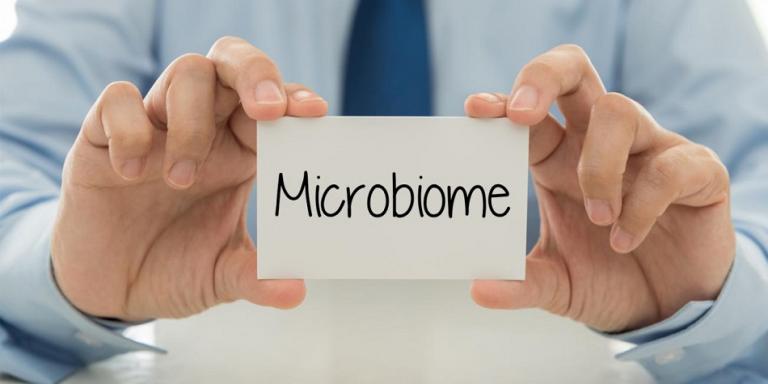Next time you put a fork of food in your mouth, consider its effects on the trillions of beneficial bacteria that call your body home. These bacteria outnumber your human cells 10 to 1, and they have favorite foods too!
If you feed them what they love, they’ll repay you in good health. They don’t only improve your digestive function—100 trillion of these single-cell organisms live in your gut, boosting your ability to process fiber and nutrients while making your body less hospitable to pathogens—but they also positively affect your mood, immune function, blood sugar, body weight, and more.
Research on the microbiome has exploded in the past few years, changing the way we view human health.
What precisely is this “microbiome”? The term refers to the symbiotic colony of you plus the bacteria in your body. Good guys proliferate if you are born vaginally, get breastfed, live in a natural environment, eschew antibiotics and an-tiseptics (which wipe out the good with the bad), and eat a diet loaded with plants and fiber.
If you take a look at standard American diet and lifestyle habits, you’ll see why our microbiome pales in comparison with those of indigenous cultures. While you can’t do much about your past, you can make a positive impact on your micro-biome now by giving it a little TLC. Get outside, open a window, don’t be afraid of a little dirt, and consider the following diet and lifestyle tweaks.
Avoid Antibiotics: The most detrimental source of antibiotics is medications, which should be avoided except when truly medically necessary. Taking a high-potency probiotic supplement during and after antibiotic therapies may mitigate the harm. However, unnecessary antibiotics and antimicrobials pop up in less expected places too: sanitizers, soaps, treated kitchen supplies and toys, and the meat and dairy products of animals from factory farms. Choose naturally raised meat and animal products. Regular soap works fine for hand and dishwashing. It’s good to give your body a few germs to chew on.
Take a Probiotic: Probiotic dietary supplements may help offset the damage of modern life while helping to bring things back into balance. Look for a product with Lactobacillus and Bifidobacterium strains that deliver at least 1 billion live bacteria. Some people prefer pills with a special coating (such as “enteric”) to help get past the acid in the stomach to release in your intestines where they will provide the greatest benefit. Well-made products can be found in the fridge and on the shelf in natural food stores. Store yours according to the label to ensure that potency is maintained.
Eat Fermented Food: Most traditional cultures consume fermented foods, which provide beneficial bacteria. Boost your intake of fermented vegetables like kimchi and live sauerkraut, miso soup (fermented soybean paste), as well as yogurt and kefir. In one lab experiment, the probiotic content of homemade sauerkraut was found to contain 10 trillion bacte-ria in a 4- to 6-ounce serving. This equates one pint jar of kraut to eight (100-count) bottles of probiotics!
Eat Prebiotic Food (aka Plants): Plants—especially high-fiber plants—are the favorite food of your beneficial bacteria. Consider gradually boosting your intake of naturally high-fiber foods like beans, Brussels sprouts, chicory root, Jerusalem artichoke, asparagus, dandelion greens, garlic, leeks, and onions. These foods may cause gas and bloating if your body isn’t used to them.
Your body may adjust more easily if you increase probiotics first, then slowly boost prebiotics. Unfortunately, low-carb and low-FODMAP (fermentable oligosaccharides, disaccharides, monosaccharides, and polyols) diets tend to starve your good guys. Low FODMAP diets are often followed by people with irritable bowel syndrome.
According to microbiome guru Jeff Leach of the Human Food Project, our ancestors used to get more than 100 grams of fiber a day; we now get an average of 15 grams. His data suggest that people who eat 30 or more different plants each week have healthier, happier bacteria compared to those who eat fewer than 10 (Americans log in at less than five).
Herbs and More Foods to Consider: Preliminary studies have found that rose petals, green tea, and ginger root encour-age beneficial bacteria while fighting pathogens. Other herbs and foods have been recently found to beneficially impact your gut bacteria, including polyphenol-rich chocolate, tea, elderberries, berries, flax, and nuts. You knew these were good for you anyway. Now you have even more reason to enjoy them!

